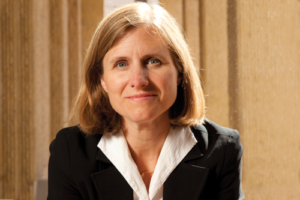From the Dean
It is often said that lawyers are risk-averse, and there is certainly some truth to that. But, at Stanford Law School, alongside the traditional lawyerly values of caution and judiciousness, there is also a palpable sense that calculated risks are worth taking, that change is not to be feared. In this issue the cover story highlights this important part of the Stanford Law culture—risk taking. The story focuses on our graduates who are pursuing opportunities in emerging markets. Unsurprisingly, they have some stories to tell—and some of them are hair-raising, as in Bill Franke’s description of being, literally, locked out of his Russian company by his “partner.” These graduates are all risk takers. Many of them are not engaged in the traditional practice of law, and all of them are working in corners of the world where there is profound uncertainty about the future, and sometimes even uncertainty about the present rules of the game. I admire the smarts, and the verve, of these graduates, and I know you will find the work they are doing of interest.

This story’s focus on emerging markets also illustrates the importance of our efforts to make SLS more global. Unlike business (or even science and mathematics), law is by its nature a parochial discipline in the sense that legal rules have long been determined, in part, by jurisdiction. It has been a truism for many years that economic, technological, demographic, and social factors have made those jurisdictional borders far less important than they once were. Of course, the study of law must change as a result. Today, many of our students choose to study, or to work during their summers, overseas. And the number of foreign nationals studying at SLS is at an all-time high. Large chunks of our curriculum now focus on legal rules and practices generated outside the borders of the United States, including study of international institutions, as well as the transactions that involve the movement of capital and goods across borders. But we can do more. We continue to look for opportunities to broaden our educational program in ways that will better prepare our graduates for their future.
And there is so much more in this issue. In reading these pages, you will be able to experience just some of what I am privileged to experience every day—that is, the work of our exceptional faculty, the boundless energy of our extraordinary students, and the contributions made by our alumni in every field imaginable.
